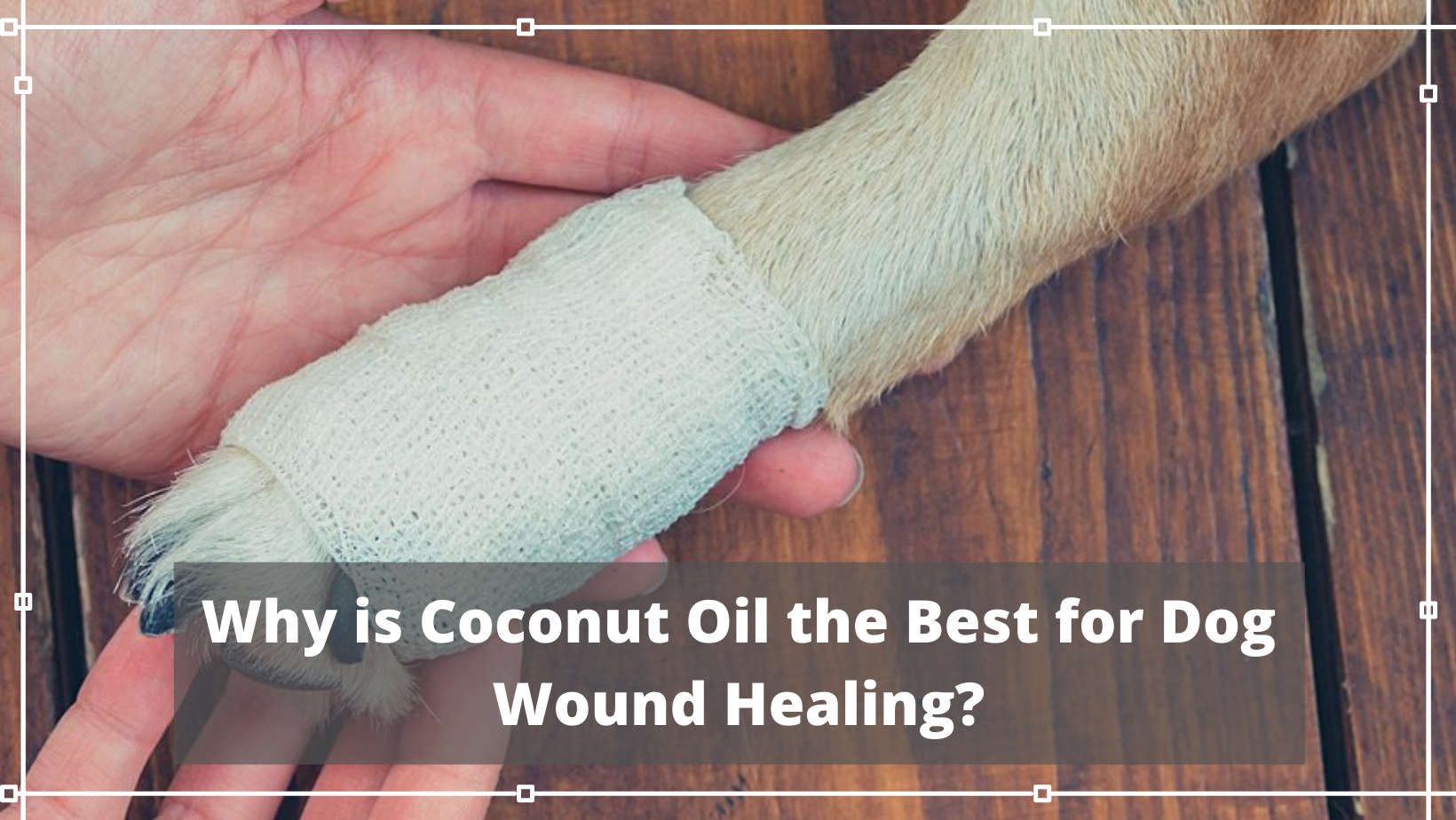Why is Coconut Oil the Best for Dog Wound Healing?

Dog owners have probably heard of coconut oil and its numerous health advantages for their dogs. But how much of it is accurate? The answer is a lot; coconut oil can help keep our canine pals healthy in a variety of ways. Every year, additional scientific study is conducted to discover more about the many medical advantages of coconut oil.
Those of us who have a first-aid kit on hand for our pets should keep a container of coconut oil on hand as well. It’s a good idea to take a small container of coconut oil for active pup parents and pups who like hiking — or other comparable rigorous activities — in tough terrain with your dog. When travelling through challenging terrain, minor abrasions, pad injuries, and cuts are all potential hazards.
Flea infestations, ear infections, and dermatitis symptoms have all been proved to respond well to coconut oil as a topical and oral therapy. Coconut oil can also help to decrease dry skin, boost cognitive function, and support a healthy GI system when used frequently.
One of the most useful uses of coconut oil is to treat small wounds and infections on the skin.
Is it Safe to Use Coconut Oil on Dogs?
Some home cures aren’t as safe as they seem. It is our obligation as responsible dog owners to ensure that the home remedies we employ are not only effective but also safe for our pets.
The good news is that one of the safest home treatments for delivering first aid to our pets is coconut oil. Coconut oil is not only beneficial, but it is also safe, whether used topically or consumed.
Some dogs may have an adverse reaction to coconut oil, which is why it’s important to keep an eye on them after the first couple of times you give it to them.
Additionally, because coconut oil includes fat, certain dogs with gastrointestinal conditions such as pancreatitis or chronic diarrhoea may have difficulty taking oral quantities of it because it is harsh on a delicate digestive system. Overall, it’s a safe home cure, but as with anything, you should proceed with caution until you know if your dog will respond negatively.
How Coconut Oil Aids in the Healing of Wounds
Coconut oil used to wounds has been shown in studies to speed up healing and minimise the risk of infection. There are three primary reasons why coconut oil is so effective in treating injuries.
To begin with, coconut oil has antiseptic characteristics that help fight bacterial, yeast, and fungal infections as well as prevent them from forming in the first place.
Lauric acid is one of such qualities, and it’s often employed as an anti-parasitic, anti-viral, and antifungal agent. Coconut oil also includes a substantial quantity of lauric acid (45-53 percent), which is why it is so effective. Second, coconut oil serves as an anti-inflammatory, reducing pain and swelling and helping the wound to heal more quickly.
Finally, coconut oil promotes collagen formation, which aids wound healing. Collagen is a protein that may be found in a variety of places, including the skin, muscles, and blood vessels5, to name a few. Collagen stimulates the creation of new healthy skin and assists in the coagulation of blood, making it crucial for wound healing. Coconut oil is one of the greatest home treatments for small wounds because of these three key causes.
How to Pick the Right Coconut Oil for Minor Wound Healing
There are a variety of coconut oil products on the market, each with a different price range. Certified research centres like the National Center for Biotechnology Information, on the other hand, use virgin coconut oil in their tests.
Going a step further, choose a cold-pressed oil, as the extraction process takes place in temperature-controlled surroundings, which helps to preserve the coconut oil’s integrity.
Furthermore, selecting an organic version of virgin cold-pressed oil ensures that you are obtaining one of the purest sorts available.





